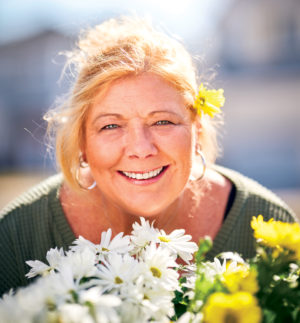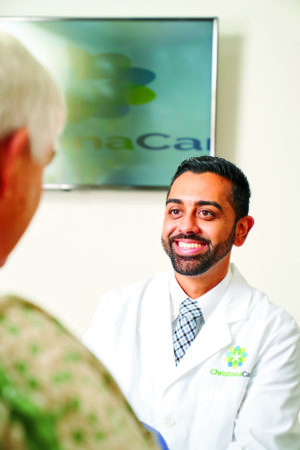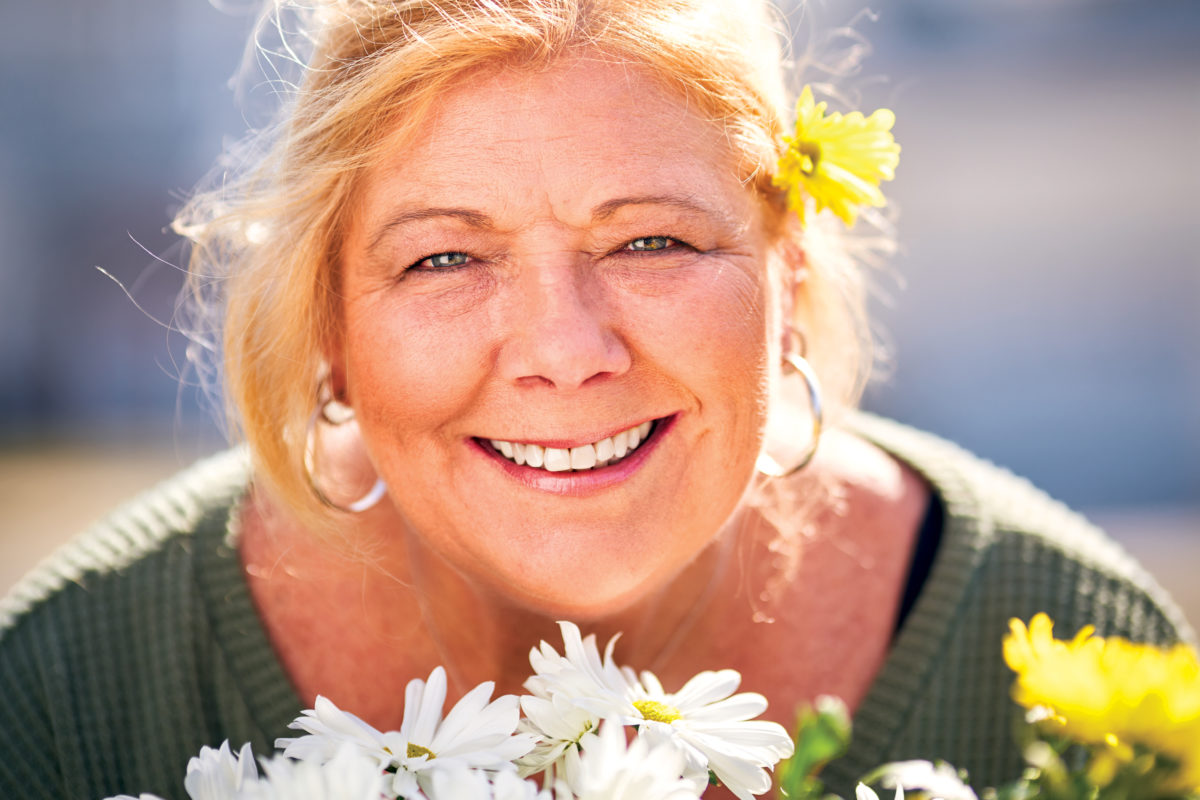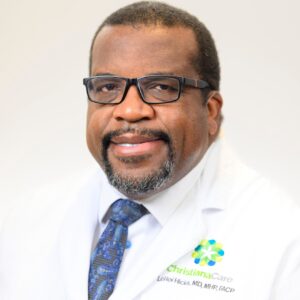Mikel Garlotta’s pain was so bad that she couldn’t move.
“There was not a minute I was not in pain,” she said. “The only way I could even get out of bed was to take opioids.”
But opioids were not a long-term solution.
For Garlotta, the road to recovery started at ChristianaCare’s Comprehensive Pain Center, which takes a holistic, multidisciplinary approach to managing chronic pain, defined as pain that lasts more than six months after an illness or injury.
She sat down with Hersh Patel, M.D., medical director of the Comprehensive Pain Center.
“I have been to at least 10 doctors and Dr. Patel was the first to truly listen to me in depth about my pain,” Garlotta said.
“There’s a narrative behind pain and we want to get the story from day one,” Dr. Patel said. “Pain isn’t just a singular issue, but one that develops over time and includes physical, emotional and social components.”
Getting to the root of pain
The goal is to get to the root cause of the pain and treat it rather than mask symptoms with medications. The center’s caregivers use techniques to improve patient well-being and function without opioids.
One patient put it this way: “I like that they do not prescribe opioids. A pill might take away the pain but it does not take away the problem.”
At the Comprehensive Pain Center, the team includes interventional pain physicians, behavioral health specialists, integrative medicine physicians, pain psychiatry and a chronic pain-focused nutritionist.

Non-medication approaches include acupuncture, aqua therapy, yoga, osteopathic manipulation, which uses manual techniques to alleviate muscle pain and specialized physical therapy for treatment of chronic pain.
Garlotta began working with a nutritionist on healthy eating habits to reduce inflammation while shedding pounds. As she lost weight, she was able to take some steps toward finding pain relief.
The Comprehensive Pain Center is open Monday through Friday, 8 a.m. to 4:30 p.m. for in-office and video visits. Call 302-623-3450 for an appointment or visit christianacare.org/pain-care.
Seth Torregiani, D.O., an integrative pain specialist at ChristianaCare, helps people manage chronic pain by combining techniques according to each person’s needs. “Just knowing that patients are not doing further damage to their bodies can often help liberate them,” he said.
It makes patients feel free to move again without fear of causing more harm and hurt. Other therapies include epidural steroid injections, joint injections, trigger-point injections and minimally invasive procedures to help people with even the most chronic and unbearable pain find relief.
As the pounds fell off, Garlotta began doing aqua therapy, which worked wonders for her. “In the water, I was free,” she recalls. “It got me walking again.”
Reducing opioid prescriptions, increasing relief

The Centers for Disease Control and Prevention reports a more than 19% reduction in annual prescribing rate from 2006 to 2017.
Health care organizations are seeking innovative ways to help people move beyond pain without opioids. With successful solutions to pain like the Comprehensive Pain Center, ChristianaCare has reduced the use of opioids by 40% among patients.
“ChristianaCare is taking a leadership role to help patients combat pain while limiting the use of opioid drugs, which have created an enormous health crisis in our community and across the nation,” said Valerie E. Dechant, M.D., physician lead, Neurosciences.
Surgery: Preventing pain before it starts
Many patients are first exposed to opioids after a surgical procedure, and too many of them eventually become dependent on them. Patients who are prescribed more opioids than they need sometimes hold on to them and use them later for ailments like pain, depression or trouble sleeping.
Led by anesthesiologist Matt Powell, M.D., Delaware’s Opioid Prescribing Engagement Network, or OPEN, developed a straightforward set of guidelines that recommend specific medications and quantities after 21 surgical procedures.
With this approach, patients may receive a non-opioid pain killer before their procedure, which can go a long way in reducing the swelling that can lead to pain after surgery and in lowering the amount of opioid medicines needed to manage pain as they heal.
To address pain and lower the risk of opioid dependence, said Dr. Powell, “patients are assigned a standardized type and quantity of post-operative pain medication depending on the type of surgery.”
Data show a 42% reduction in prescribing opioids at ChristianaCare — which relates to more than 50 types of surgical procedures performed between 2017 and 2019. Prescriptions for 10 pills or fewer have increased from 30% to over 50% and prescriptions for 30 or more pills have decreased from 29% to 8% in the same timeframe.
More than ‘mind over matter’
Many times patients with chronic pain feel imprisoned in their own bodies, said ChristianaCare Physical Therapist DeAndre Caldwell, DPT, ATC, Cert. MDT, TPS.
He helps patients, many of whom are desperate for relief, with an innovative physical therapy program designed specifically for people with chronic pain.
“It’s okay to move when you have pain,” he said. “In fact, if you move more, you may actually hurt less.”
Far from using the simplistic saying “mind over matter,” ChristianaCare pain experts help patients understand what is happening in the brain when pain is triggered, and not just how to cope but how to think about pain in a new way.
“We work with people’s perception of pain for a better quality of life,” said Vanessa Patel, M.D., pain psychiatrist. “We can train our minds to function with pain differently and actually change the way we react to pain.”
Mikel Garlotta can now go up and down the stairs. She is happy to be able to shop for groceries, cook and even run the vacuum. “It’s these little things that mean all the world to me.”
To learn more about pain management at ChristianaCare, visit christianacare.org/pain-care.



